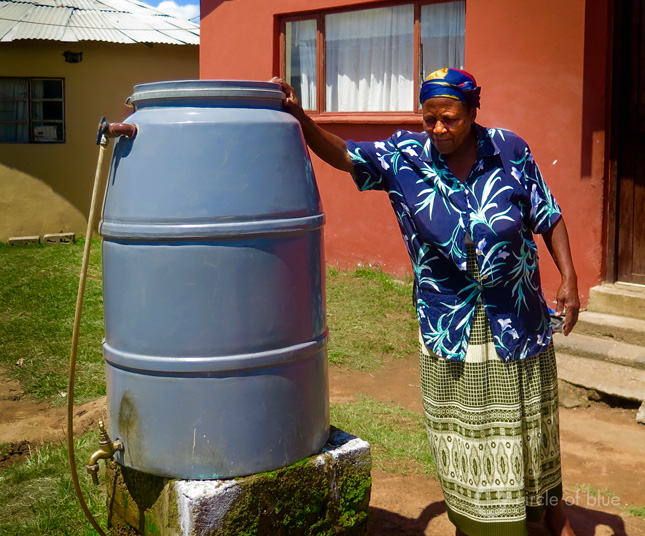-
Keith Schneider, Circle of Blue
Durban’s Decentralized Water and Sanitation System Sets Global Standard
February 17, 2016 By Wilson Center Staff
DURBAN, South Africa — Arguably the most elegant aspect of an inelegant subject is how this city of 3.2 million residents, South Africa’s second largest, is solving monumental water and waste challenges in its jammed informal settlements.
The eThekwini (ett-ta-kweeny) Muncipality Water and Sanitation Department, Durban’s water and waste management provider, avoided huge and expensive equipment, big pipelines, and the complicated sewage disposal practices of centralized water and sanitation systems. Instead it deployed a decentralized strategy, partnerships, baseline research, and less expensive tools that worked.
The centerpiece of Durban’s program for the time being is the “community ablution block” public washroom. It is an ordinary marine cargo container refitted inside with running water in sinks and wash basins, toilets, and showers. Durban has 2,500 ablution blocks installed in many of its nearly 500 informal settlements. There is sufficient public funding to fabricate and install perhaps 80 more annually.
Other innovations are the 85,000 urine-diverting toilets, standpipes, and water storage tanks installed outside settlement homes, a mobile sludge processing plant that sterilizes waste hauled from toilets and yields usable compost, and an aggressive program to clean wastes from pit toilets and then replace them.
Continue reading on Circle of Blue.
Sources: Circle of Blue.
Photo Credit: Used with permission courtesy of Keith Schneider/Circle of Blue.
 A Publication of the Stimson Center.
A Publication of the Stimson Center.



